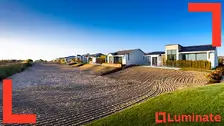Subdivision Consent Costs in New Zealand: A Comprehensive Cost Analysis
 By
Trent Bradley
·
12 minute read
By
Trent Bradley
·
12 minute read
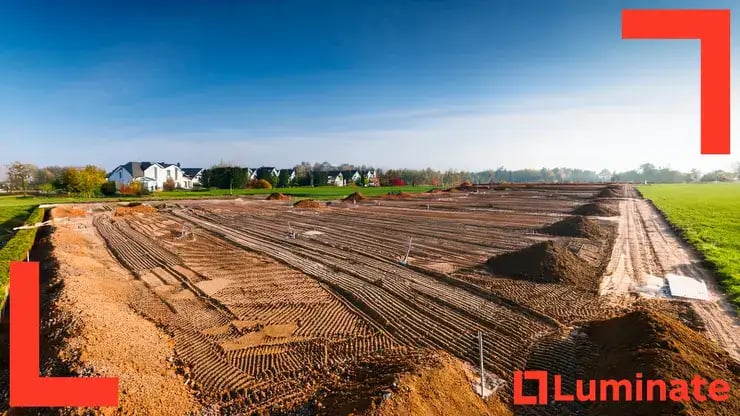
Understanding subdivision consent costs is crucial for accurate project budgeting, feasibility analysis, and development finance planning in New Zealand. Consent costs extend far beyond basic council application fees to encompass professional services, technical studies, and ongoing compliance obligations. This detailed guide provides comprehensive analysis of all subdivision consent costs, from initial application through final approval, with regional variations and optimization strategies.
Table of Contents
- Understanding Subdivision Consent Cost Structure
- Council Fee Structures and Variations
- Professional Service Cost Analysis
- Technical Study and Assessment Costs
- Processing and Administrative Costs
- Development Contribution Calculations
- Cost Optimization Strategies
- Regional Cost Comparisons
- Cost Management and Budgeting
- Financing Consent Costs
- Future Cost Trends
- Risk Management and Contingency Planning
- Working with Cost Management Specialists
- Frequently Asked Questions
Key Takeaways
- Subdivision consent costs comprise council application fees ($2,000-$25,000), professional services ($30,000-$400,000+), technical studies ($20,000-$100,000+), and development contributions—with professional services representing 60-80% of total costs
- Auckland represents the highest-cost consent environment with total costs often exceeding $150,000-$300,000 for standard subdivisions, while rural districts may range from $50,000-$120,000
- Development contributions vary dramatically by region—Auckland often exceeds $50,000-$100,000 per lot, Canterbury ranges $10,000-$30,000, while some rural areas impose minimal contributions
- High-quality application preparation reduces processing costs by 20-40% through fewer information requests, reduced council review time, and faster approval processes
- Consent cost budgets should include 15-25% contingencies for unexpected costs, scope changes, processing complications, and potential appeals or variations
- Pre-application consultation typically costs $5,000-$15,000 but often reduces formal application costs by 20-40% through early issue identification and resolution
- Professional services break down as: planning consultants ($25,000-$200,000+), surveys and engineering ($15,000-$150,000+), legal services ($8,000-$80,000+), and specialist consultants ($5,000-$25,000 each)
Understanding Subdivision Consent Cost Structure
Subdivision consent costs comprise multiple components requiring systematic budgeting and careful management throughout development processes.
Council Application Fees: Basic application fees represent only a small portion of total consent costs, typically ranging from $2,000-$8,000 for straightforward subdivisions and $5,000-$25,000 for complex applications. Application fees vary significantly between councils reflecting different fee structures and service levels.
Professional Service Costs: Professional services typically represent 60-80% of total consent costs including planning consultants, surveyors, engineers, and legal advisors. Professional costs range from $30,000-$80,000 for simple subdivisions extending to $150,000-$400,000+ for complex developments.
Technical Study Requirements: Specialist reports including traffic assessments, ecological surveys, geotechnical investigations, and acoustic analyses typically cost $20,000-$100,000+ depending on application complexity and site conditions.
Processing and Compliance Costs: Ongoing processing costs including council meetings, peer reviews, and compliance monitoring typically add 15-25% to base application costs throughout consent processing periods.
Variation and Amendment Costs: Project variations and consent amendments typically cost $5,000-$20,000 per variation depending on scope and complexity. Variation costs should be budgeted as contingencies for all subdivision projects.
Appeals and Legal Costs: Consent appeals and legal challenges can cost $50,000-$200,000+ requiring substantial contingency provision for controversial or complex applications.
Council Fee Structures and Variations
Council consent fees vary dramatically across New Zealand reflecting different approaches to cost recovery, service provision, and development management.
Auckland Council Fees: Auckland charges comprehensive fees reflecting sophisticated assessment processes with subdivision consent fees typically ranging from $8,000-$30,000 for applications plus additional costs for peer review, hearings, and specialist input. Auckland's fee structure includes detailed cost recovery for all processing components.
Wellington Region Fees: Wellington region councils charge varied fees with Wellington City typically requiring $5,000-$15,000 for subdivision applications while smaller councils like Porirua and Upper Hutt may charge $3,000-$10,000 reflecting different service approaches and processing complexity.
Canterbury Council Fees: Christchurch and Canterbury councils typically charge moderate fees ranging from $4,000-$12,000 for subdivision applications reflecting streamlined post-earthquake processing systems and competitive fee structures aimed at supporting development activity.
Provincial City Fees: Provincial centers including Hamilton, Tauranga, and Dunedin typically charge fees ranging from $3,000-$10,000 for subdivision applications with some councils offering discounted fees for qualifying developments or experienced developers.
District Council Variations: Smaller district councils demonstrate significant fee variations from $2,000-$8,000 for simple subdivisions though lifestyle and tourism districts may charge higher fees reflecting increased processing complexity and infrastructure requirements.
Regional Council Fees: Regional council fees for discharge consents and water permits typically range from $1,500-$8,000 depending on complexity and environmental assessment requirements.
Professional Service Cost Analysis
Professional services represent the largest component of subdivision consent costs requiring careful selection and budget management.
Planning Consultant Costs: Subdivision planning services typically cost $25,000-$60,000 for straightforward applications extending to $80,000-$200,000+ for complex discretionary subdivisions requiring extensive consultation and specialist input. Planning costs reflect application complexity, council requirements, and processing duration.
Survey and Engineering Costs: Subdivision surveys and preliminary engineering typically cost $15,000-$40,000 for simple projects increasing to $50,000-$150,000+ for complex subdivisions requiring detailed infrastructure design and extensive site investigation.
Legal Service Costs: Legal services for consent applications typically cost $8,000-$25,000 including application review, condition negotiation, and documentation preparation. Complex applications requiring hearing representation may cost $30,000-$80,000+ including expert witness coordination.
Project Management Costs: Professional project management for consent processes typically costs 8-15% of total professional fees but often delivers savings through improved coordination and timeline management.
Specialist Consultant Costs: Traffic engineers, ecologists, archaeologists, and other specialists typically charge $5,000-$25,000 per assessment depending on complexity and study requirements. Multiple specialist studies can significantly increase total consent costs.
Quantity Surveyor Costs: Cost estimation and value assessment services typically cost $3,000-$12,000 but provide valuable input for development finance applications and feasibility validation.
Technical Study and Assessment Costs
Subdivision consent applications typically require various technical studies with costs varying significantly based on site conditions and council requirements.
Traffic Impact Assessment: Traffic studies typically cost $8,000-$25,000 for standard subdivisions increasing to $20,000-$50,000+ for large developments or sites with complex traffic implications. Traffic assessment costs reflect intersection analysis, safety evaluation, and mitigation design.
Ecological Assessment: Ecological surveys and impact assessments typically cost $5,000-$20,000 for standard investigations extending to $15,000-$40,000+ for sites with significant ecological values requiring detailed mitigation design.
Geotechnical Investigation: Geotechnical studies typically cost $8,000-$25,000 for subdivision applications including soil testing, slope stability assessment, and foundation recommendations. Complex sites may require $20,000-$50,000+ for comprehensive investigation.
Archaeological Assessment: Archaeological surveys typically cost $3,000-$12,000 for standard desktop and field assessment extending to $15,000-$40,000+ for sites requiring detailed investigation and iwi consultation.
Acoustic Assessment: Noise impact studies typically cost $5,000-$15,000 for subdivision applications though sites near airports, railways, or industrial activities may require $10,000-$30,000+ for detailed assessment and mitigation design.
Landscape and Visual Assessment: Landscape impact studies typically cost $8,000-$20,000 for subdivision applications in sensitive environments though complex sites may require $15,000-$40,000+ for detailed assessment and design integration.
Contamination Assessment: Contaminated site investigations typically cost $5,000-$15,000 for preliminary assessment extending to $20,000-$80,000+ for sites requiring detailed investigation and remediation planning.
Processing and Administrative Costs
Consent processing involves various administrative costs beyond basic application fees requiring budget provision throughout processing periods.
Peer Review Costs: Council peer review of technical reports typically costs $3,000-$15,000 depending on review scope and complexity. Peer review ensures technical quality while potentially extending processing timeframes.
Hearing and Commissioner Costs: Public hearings typically cost $5,000-$25,000 in council fees plus $20,000-$80,000+ in professional representation and expert witness costs. Hearing costs represent significant budget items for controversial applications.
Site Visit and Inspection Costs: Council site visits and inspections may involve charges ranging from $500-$2,000 per visit though some councils include these costs in application fees.
Additional Information Costs: Requests for additional information may trigger additional professional costs ranging from $2,000-$15,000 depending on information scope and complexity.
Monitoring and Compliance Costs: Some consents include monitoring requirements involving ongoing costs ranging from $1,000-$10,000 annually depending on monitoring scope and frequency.
Administrative Processing: Council administrative costs including file management, communication, and coordination typically represent 10-20% of total council fees.
Development Contribution Calculations
Development contributions represent significant subdivision costs requiring early assessment and budget provision.
Auckland Development Contributions: Auckland imposes substantial development contributions often exceeding $50,000-$100,000 per lot for residential subdivision reflecting high infrastructure costs and service standards. Auckland contributions vary by location and development type.
Wellington Region Contributions: Wellington region contributions vary significantly between councils from $15,000-$40,000 per lot for residential development though some areas may require higher contributions for specific infrastructure requirements.
Canterbury Contributions: Canterbury councils typically impose moderate development contributions ranging from $10,000-$30,000 per lot reflecting lower infrastructure costs and competitive development environments.
Provincial Contributions: Provincial councils demonstrate varied contribution policies from minimal contributions in some areas to $20,000-$50,000+ per lot in high-growth areas requiring significant infrastructure investment.
Rural Development Contributions: Rural subdivisions may face lower contributions due to private infrastructure provision though some councils impose contributions for regional infrastructure and community facilities.
Contribution Timing: Development contribution payment timing varies between councils with some requiring upfront payment while others accept deferred payment until building consent or sale completion.
Cost Optimization Strategies
Strategic approaches can significantly reduce subdivision consent costs while maintaining quality outcomes and regulatory compliance.
Early Professional Engagement: Early engagement with experienced professionals often reduces total costs through efficient application preparation, reduced information requests, and streamlined processing.
Pre-Application Investment: Comprehensive pre-application consultation typically costs $5,000-$15,000 but often reduces formal application costs by 20-40% through early issue identification and resolution.
Application Quality: High-quality application preparation typically reduces processing costs through fewer information requests, reduced council review time, and faster approval processes.
Professional Coordination: Integrated professional teams often deliver better value than individual appointments while reducing coordination costs and potential conflicts between different advisors.
Council Relationship Management: Positive council relationships built through professional engagement often reduce processing costs while facilitating problem resolution and efficient communication.
Strategic Timing: Application timing during optimal council capacity periods can reduce processing costs while avoiding peak-period delays and potential additional charges.
Scope Management: Careful scope definition and change control prevents unnecessary variations and additional costs while maintaining project focus and budget discipline.
Regional Cost Comparisons
Subdivision consent costs vary significantly across New Zealand regions reflecting different council approaches, market conditions, and infrastructure requirements.
High-Cost Regions: Auckland represents the highest-cost consent environment with total consent costs often exceeding $150,000-$300,000 for standard residential subdivisions due to complex requirements, high professional fees, and substantial development contributions.
Moderate-Cost Regions: Wellington region and main provincial cities typically involve moderate consent costs ranging from $80,000-$180,000 for standard subdivisions reflecting balanced regulatory requirements and competitive professional markets.
Lower-Cost Regions: Rural districts and smaller provincial councils often offer lower consent costs ranging from $50,000-$120,000 for standard subdivisions though specialist requirements may increase costs for complex sites.
Tourism and Lifestyle Areas: Popular tourism and lifestyle destinations often involve higher consent costs due to environmental sensitivity, community opposition, and specialized assessment requirements.
Growth Area Variations: Fast-growing areas may experience higher consent costs due to capacity constraints and increased assessment requirements while also facing higher development contributions for infrastructure provision.
Cost Management and Budgeting
Effective cost management requires systematic approaches to budgeting, monitoring, and control throughout consent processes.
Comprehensive Cost Budgeting: Subdivision consent budgets should include all cost components with appropriate contingencies for variations, delays, and additional requirements. Budget development requires professional input and realistic cost assessment.
Cost Monitoring Systems: Regular cost monitoring and reporting helps identify budget variations and enables proactive cost management throughout consent processes.
Contingency Planning: Consent cost budgets should include contingencies of 15-25% for unexpected costs, scope changes, and processing complications. Adequate contingencies prevent cash flow problems while ensuring project completion capacity.
Value Engineering: Regular value engineering review helps optimize cost-benefit relationships while maintaining quality outcomes and regulatory compliance.
Professional Fee Management: Clear professional fee arrangements including scope definition, variation procedures, and payment terms help manage professional costs while ensuring quality service delivery.
Cash Flow Planning: Consent cost cash flows should be planned carefully considering payment timing, professional invoicing patterns, and council fee requirements throughout processing periods.
Financing Consent Costs
Subdivision consent costs represent significant upfront investments requiring appropriate financing strategies and cash flow management.
Development Finance Integration: Consent costs should be integrated into development finance applications ensuring adequate funding provision for all consent-related expenses throughout processing periods.
Cash Flow Timing: Consent costs typically front-load subdivision expenses requiring careful cash flow planning and adequate working capital throughout processing periods before revenue generation begins.
Professional Fee Funding: Professional services often require progress payments throughout consent processes requiring working capital provision and cash flow management throughout extended processing periods.
Contingency Funding: Additional funding should be available for consent cost variations, appeals, and unexpected requirements that may arise during processing periods.
Cost Recovery Planning: Consent costs should be recovered through subdivision sales pricing ensuring adequate margins while maintaining market competitiveness and sales appeal.
Future Cost Trends
Subdivision consent costs continue evolving in response to regulatory changes, technology advancement, and market development pressures.
Technology Impact: Digital processing and assessment technologies may reduce some consent costs while creating new technical requirements and specialist input needs.
Regulatory Complexity: Increasing regulatory complexity and environmental requirements may increase consent costs while potentially improving processing efficiency through standardization.
Professional Market Development: Growing demand for consent services may increase professional costs while improved efficiency and competition may provide some cost moderation.
Council Capacity Investment: Council investment in processing capacity and expertise may improve efficiency while potentially increasing fee structures to recover enhanced service costs.
Climate Change Requirements: Increasing climate change assessment requirements may add new cost components while creating opportunities for streamlined environmental assessment.
Risk Management and Contingency Planning
Consent cost management requires comprehensive risk assessment and contingency planning for various scenarios.
Cost Escalation Risks: Professional fee inflation and council fee increases require ongoing monitoring and budget adjustment throughout development periods.
Scope Change Management: Project variations and additional requirements can significantly impact consent costs requiring systematic change control and budget management.
Processing Delay Costs: Extended processing periods increase professional costs and holding charges requiring realistic timeline assumptions and adequate contingency provision.
Appeal and Legal Costs: Consent appeals and legal challenges can dramatically increase costs requiring appropriate contingency provision and insurance consideration.
Market Condition Impact: Changing market conditions may affect professional availability and pricing requiring flexible approaches and alternative service arrangements.
Working with Cost Management Specialists
Professional cost management provides valuable expertise in consent cost optimization and budget control throughout subdivision development.
At Luminate Finance, we understand that consent costs represent critical subdivision investments requiring systematic management and appropriate financing throughout development periods.
Our extensive experience across diverse subdivision projects provides valuable benchmarking and cost validation helping developers prepare realistic budgets while identifying optimization opportunities and cost management strategies.
We regularly participate in consent cost planning and management, providing guidance on budget development, professional coordination, and cost optimization that supports successful subdivision outcomes within planned budgets.
Our comprehensive approach includes cost analysis, professional network access, and ongoing budget monitoring that aligns consent investments with development objectives and financing arrangements.
Through our involvement in numerous subdivision consent processes, we've developed deep understanding of cost drivers and effective management strategies that optimize outcomes while controlling expenses throughout consent processes.
Our network of professional relationships provides access to competitive professional services and cost-effective solutions while maintaining quality standards and regulatory compliance throughout subdivision development.
Frequently Asked Questions
What are the main components of subdivision consent costs?
Subdivision consent costs comprise multiple components: council application fees (typically $2,000-$25,000 depending on complexity and location), professional services including planning consultants, surveyors, engineers, and lawyers ($30,000-$400,000+ representing 60-80% of total costs), technical studies such as traffic assessments, ecological surveys, and geotechnical investigations ($20,000-$100,000+), processing and compliance costs (adding 15-25% to base costs), development contributions ($10,000-$100,000+ per lot varying by region), and potential variation or appeal costs ($5,000-$200,000+). Accurate budgeting requires systematic assessment of all components with appropriate contingencies.
How much do council fees vary across different New Zealand regions?
Council fees vary dramatically across regions. Auckland charges the highest fees at $8,000-$30,000 for subdivision applications plus additional costs for peer review and specialist input. Wellington region councils charge $3,000-$15,000 depending on the specific council. Canterbury councils typically charge moderate fees of $4,000-$12,000 reflecting streamlined processing systems. Provincial cities like Hamilton, Tauranga, and Dunedin charge $3,000-$10,000, while smaller district councils range from $2,000-$8,000 for simple subdivisions. Regional council fees for discharge consents and water permits typically add $1,500-$8,000 depending on environmental assessment requirements.
What technical studies are typically required and what do they cost?
Common technical studies include: traffic impact assessments ($8,000-$50,000+ depending on development size and complexity), ecological assessments ($5,000-$40,000+ for sites with significant ecological values), geotechnical investigations ($8,000-$50,000+ for soil testing and stability assessment), archaeological assessments ($3,000-$40,000+ depending on site sensitivity), acoustic assessments ($5,000-$30,000+ for sites near noise sources), landscape and visual assessments ($8,000-$40,000+ for sensitive environments), and contamination assessments ($5,000-$80,000+ depending on investigation and remediation requirements). Study costs reflect site conditions, scope requirements, and council assessment standards.
How can I reduce subdivision consent costs without compromising quality?
Effective cost reduction strategies include early professional engagement (reducing total costs through efficient application preparation), pre-application consultation ($5,000-$15,000 investment typically reduces formal costs by 20-40%), high-quality application preparation (minimizing information requests and review time), professional coordination (integrated teams deliver better value than individual appointments), positive council relationship management (facilitating problem resolution and efficient communication), strategic application timing (during optimal council capacity periods), and careful scope management (preventing unnecessary variations). These approaches maintain quality outcomes while optimizing cost-benefit relationships throughout consent processes.
What are development contributions and how much should I budget?
Development contributions are charges imposed by councils to fund infrastructure and community facilities required to support new development. Contributions vary dramatically: Auckland often exceeds $50,000-$100,000 per lot for residential subdivision reflecting high infrastructure costs, Wellington region ranges $15,000-$40,000 per lot, Canterbury typically imposes $10,000-$30,000 per lot, provincial high-growth areas may require $20,000-$50,000+ per lot, while rural subdivisions with private infrastructure may face lower contributions. Payment timing varies—some councils require upfront payment while others accept deferred payment until building consent or sale completion. Early assessment and budget provision are crucial.
How long do consent costs take to accumulate and when are payments due?
Consent costs accumulate throughout the 6-18+ month processing period with different payment timings: council application fees are typically due at lodgement, professional services often require progress payments throughout the process (creating ongoing cash flow requirements), technical studies are usually paid upon completion (front-loaded in the process), peer review and hearing costs occur during processing, and development contributions may be due at consent issue, building consent, or sale completion depending on council policies. This front-loaded expense pattern requires careful cash flow planning and adequate working capital throughout extended processing periods before revenue generation from lot sales begins.
What contingency should I include in my consent cost budget?
Consent cost budgets should include 15-25% contingencies for unexpected requirements including: variation and amendment costs ($5,000-$20,000 per variation), additional information requests from councils ($2,000-$15,000 depending on scope), processing delays increasing professional costs, scope changes during application assessment, peer review requirements ($3,000-$15,000), potential hearing costs ($25,000-$105,000+ including representation and expert witnesses), and appeal or legal costs ($50,000-$200,000+ for challenged consents). Adequate contingencies prevent cash flow problems while ensuring project completion capacity. Controversial or complex applications warrant higher contingencies due to increased appeal risk.
Why are Auckland subdivision consent costs so much higher than other regions?
Auckland's higher costs reflect multiple factors: more complex regulatory requirements and assessment processes, sophisticated technical standards requiring extensive specialist input, higher professional fee rates due to market demand and cost of living, substantial development contributions ($50,000-$100,000+ per lot) for expensive infrastructure, greater peer review requirements adding $3,000-$15,000+, longer processing periods increasing professional costs, and higher likelihood of public hearings and submissions requiring additional representation costs ($25,000-$105,000+). Total Auckland consent costs often exceed $150,000-$300,000 for standard residential subdivisions compared to $50,000-$120,000 in rural districts. These higher costs must be factored into feasibility analysis and lot pricing strategies.
Ready to optimize your subdivision consent costs with expert guidance? Contact Luminate Finance today to discuss how our comprehensive cost management expertise and extensive professional networks can support your subdivision success through effective cost control and strategic budget management.

Trent Bradley
Trent Bradley is a New Zealand financial advisor specializing in property-backed finance and investment consulting. With over 26 years of experience running his mortgage broking business, he has helped wholesale investors access high-yield property-backed loan opportunities. For the past 12 years, Trent has led Luminate Finance, a New Zealand finance company dedicated to connecting investors with secure property investment solutions.




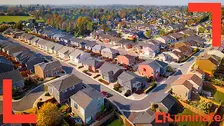

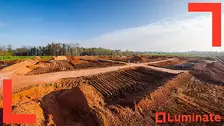



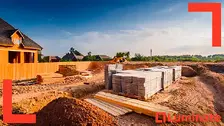








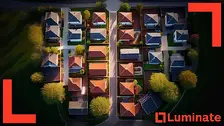







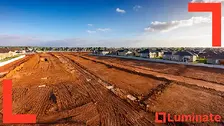

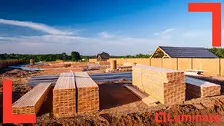



.png?//48413319.fs1.hubspotusercontent-ap1.net/hubfs/48413319/Featured%20images%20(14).png&width=247&height=126&name=Featured%20images%20(14).png)


